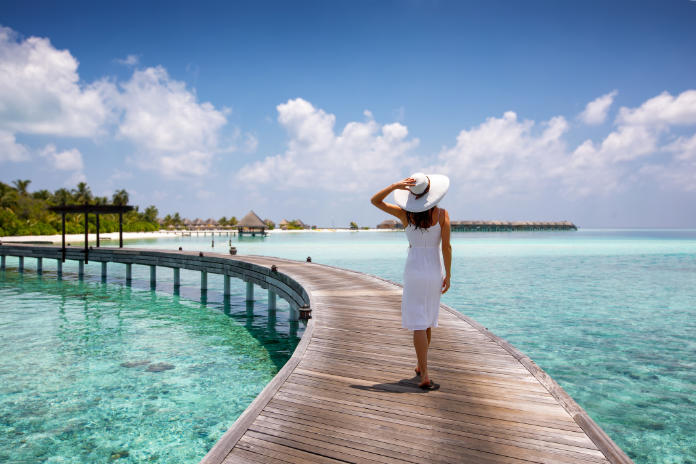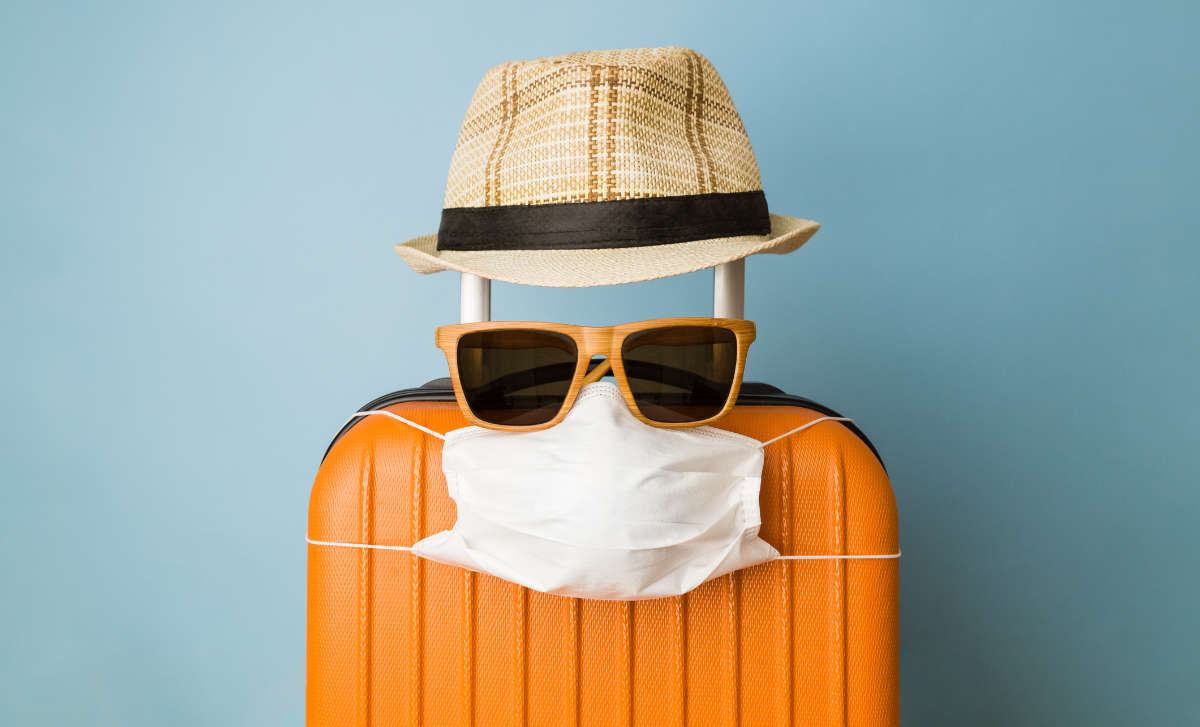As most of us prepare for a winter within the same four walls we’ve been staring at for the past eight months, the idea of getting on a plane and travelling for more than eight hours feels like a dream too impossible to imagine.
In reality, much of the world is within easier reach, as countries continue to open their borders to international tourism. Only recently South Africa and Botswana announced they would be welcoming back British and Irish travellers; Costa Rica and Ecuador are options on the other side of the globe.
Although all travel is off limits during lockdowns, once restrictions lift, there are options for holidaying further afield.

At the time of going to press, the list of long-haul countries granted a UK travel corridor (and where no quarantine is required on arrival), include UAE, St Lucia, Maldives and Barbados. But there are many other places with efficient Covid safety protocols already in place and ready to host UK and Irish holidaymakers – even if our FCDO and the Irish Department Of Foreign Affairs (DFA) still considers them largely to be ‘no-go’ zones.
In many places, such as across Africa, infection rates are relatively low, making travel potentially safer than a short-haul hop across Europe.
The only challenge is logistics. But if you’re confident enough to make the break, there are solutions. Here’s everything you need to know…
Testing is everything
Nearly all countries (Tanzania being a notable exception), require travellers to present a Covid-19 negative test result on arrival. Airlines in the UK and Ireland won’t even let you board a plane to those destinations without one. Although there are lots of tests on the market, the most widely accepted is the Antigen PCR test.
You won’t be able to get one through the NHS (these are reserved for people with symptoms), so be prepared to pay around £175 for a test and certificate. The Harley Health Centre in London offer a service with a guaranteed turnaround of 48 hours (harleyhealthcentre.com). There is also the option to buy postal tests, although these will take 48-72 hours to process (£145).
We will soon be providing rapid antigen testing for COVID-19 for a quick answer so you can get on with what you need to. Perfect for companies, some travel and keeping your family members safe.
We remain at your service throughout lockdown. pic.twitter.com/52aJ4FEwSW
— Harley Street (@HarleyHealth) November 5, 2020
Stipulations on the time lag between results being received and a person arriving in a country do vary, however. Requirements can be anything between 48 hours and 14 days; check with each country first.
If you do need a fast turnaround, the Private Harley Street Clinic in London offer a rapid test available same day or within 24 hours (£250; privateharleystreetclinic.com). Again, a home testing kit is available but results can be guaranteed only within 72 hours (£149).
Two private companies have announced they will be trialling rapid testing at Dublin airport with results delivered in five hours (€199; Rocdoc; rocdochealthcheck.ie) and between 24-48 hours (€99; Randox; booking.randox.ie). Book via the companies’ individual websites.
Alternatively, anyone travelling with Emirates to Dubai – either in transit or with UAE as their final destination – can take advantage of a test on arrival included in the price of the plane ticket and available within 24 hours (emirates.com).
Insurance is key
Finding travel insurance is one of the major concerns when travelling to a country with an FCDO or DFA warning; most policies will be immediately void.
There are, however, two companies willing to cover holidaymakers visiting these destinations.
Lockdown won’t last forever.
(we hope…)
But how are you going to ensure your safety once we can all start exploring again?
battleface present: 4 holiday survival tips from the high-risk specialist. Check it out here: https://t.co/5NIaMmOnwG #postlockdowntravel #travelsafety pic.twitter.com/XOuI30J4Ge
— battleface (@battlefacePlan) November 17, 2020
Battleface (battleface.com) are specialists in this area, with years of experience protecting humanitarian aid workers and journalists working in difficult territories. Now their services are being snapped up by safari-goers in Kenya or sunseekers in the Algarve.
Single-trip policies include Covid cover as part of a Travel Medical product for anyone under the age of 59. (Older travellers can still make use of standard benefits, but won’t be able to claim for medical expenses caused by or resulting from Covid-19.) It’s also worth noting, Covid-related expenses for trip cancellations or lockdowns are not covered.
Travellers aged between 60-74 can buy medical cover from Seven Corners (sevencorners.com), who offer a Liaison Travel Plus Medical policy.
Check airline and operator cover
During these challenging times, many operators, airlines and lodges are offering clients flexible booking options. Ethiopian Airlines, for example, has launched a Sheba Cover plan, covering medical expenses up to €100,000 for anyone diagnosed with Covid-19 whilst travelling with the airline, plus costs of up to €150 per day, for a maximum of 14 days, for anyone forced to quarantine. This is only available to passengers under 79. Visit ethiopianairlines.com.
Ethiopian airlines at the forefront of the aviation industry has always stayed committed to its mission of serving customers in good & bad times, sustaining our operation during a global pandemic Ethiopian will continue to adapt to the new normal.#FlyEthiopian #Flywithconfidence pic.twitter.com/GFjVwVMXzn
— Ethiopian Airlines (@flyethiopian) October 19, 2020
Emirates are offering a similar service up until the end of the year. Valid for 31 days from departure, it also covers passengers if they travel onwards to another city.
Cover for both is automatically included in the flight price.
When it comes to ground arrangements, many properties will allow holidaymakers to change bookings or even – in some cases – receive full refunds if plans change due to lockdowns or contracting Covid-19. It’s always worth asking in advance.
Check requirements in every destination
Every country has different regulations – which can change frequently. The FCDO or DFA are good starting points, but information isn’t always up to date. It’s recommended to double check with individual embassies or tourism boards. Established tour operators, such as Abercrombie & Kent (abercrombiekent.co.uk), will have offices in destinations, who can provide excellent advice.
You may also be interested in…































































